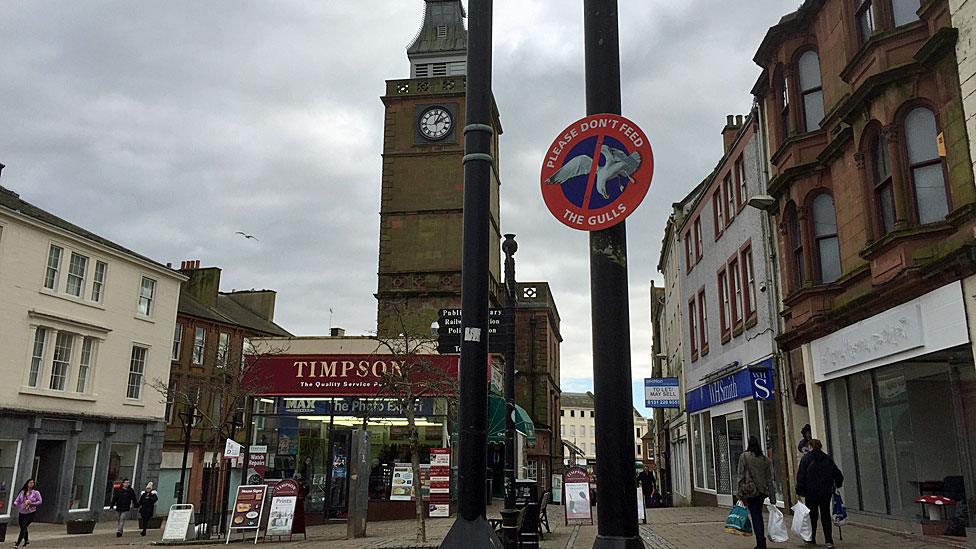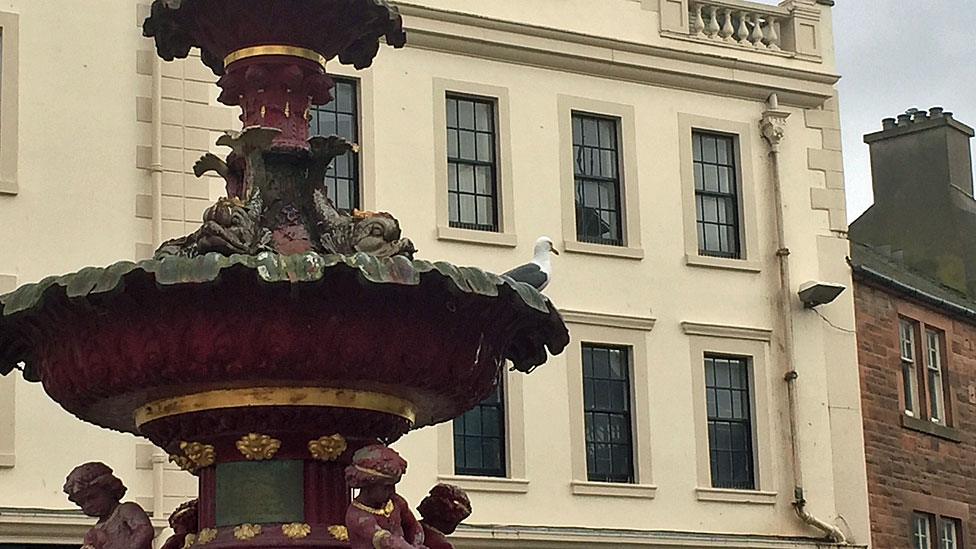Dumfries dive-bombing seagull battle 'success' outlined
- Published

Dumfries was the location of a national summit on the urban gull problem nearly a decade ago
A south of Scotland town remains on the frontline of the fight against urban seagulls nearly 10 years after hosting a national summit on the issue.
Dumfries held the discussions in the summer of 2008 in the face of ongoing issues with dive-bombing birds.
The following year an egg and nest removal scheme was offered free of charge in the area for the first time.
It has been credited with driving numbers down - particularly in the town centre.
Dumfries was selected as the site for the summit meeting due to continued problems with the urban birds for many years.
Among the issues encountered were:
Direct stealing of food from people's hands
Swooping and dive-bombing to protect chicks
Noise issues, particularly at first light in residential areas
Mess on cars, buildings, washing, footpaths and people
Litter caused by refuse bags being ripped open
The total number of breeding pairs in and around Dumfries is now lower than its peak in 2012 but remains higher than when the egg and nest removal started.
However, figures for the town centre have fallen by more than 50%.
A number of different methods to tackle the problem have been tried out over the years in addition to the egg and nest removal.
Falcons once flew in the skies over the town, external in a bid to deter roof-nesting gulls but it was deemed only a "partial success".
The installation of water sprayers on buildings was unsuccessful as infra-red sensors lost effectiveness in the summer.
New signs were also put up last year in a bid to stop the public feeding the birds and community safety officers have also tried to discourage people from giving them food.

The number of pairs of gulls nesting in the town centre has fallen significantly
Over nine years in operation more than £280,000 has been spent on the egg and nest removal scheme with the latest three-year contract scheduled to run until next year.
A study has recommended that it continues to be offered free of charge as other councils have found that even a "token payment" can significantly reduce uptake.
A report to Dumfries and Galloway Council has drawn some conclusions about the scheme's effectiveness.
It said that although it was "impossible to prove" it seemed "highly likely" that if the local authority had not taken action the number of birds in the town would be "considerably higher".
It pointed out that gull management was inevitably a "long and drawn out" process and had been "largely experimental" in the town.
The report added it was critical the work continued in order to analyse the effects of the measures being taken.
If they prove successful, then the lessons learned in Dumfries could be used to benefit many other parts of the UK suffering similar problems.